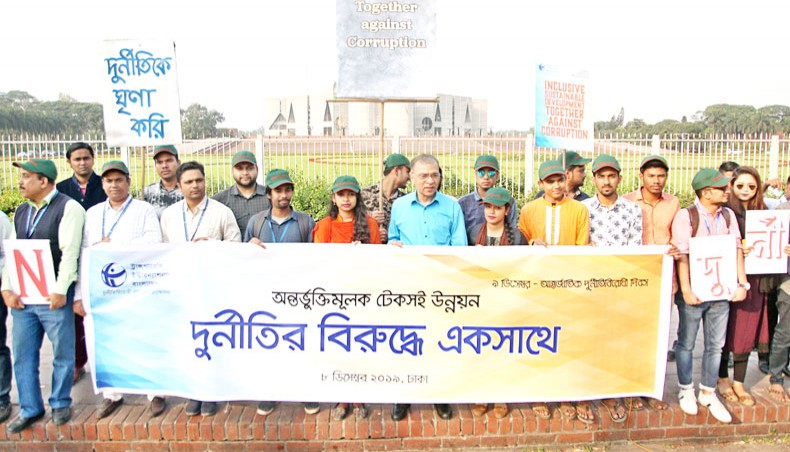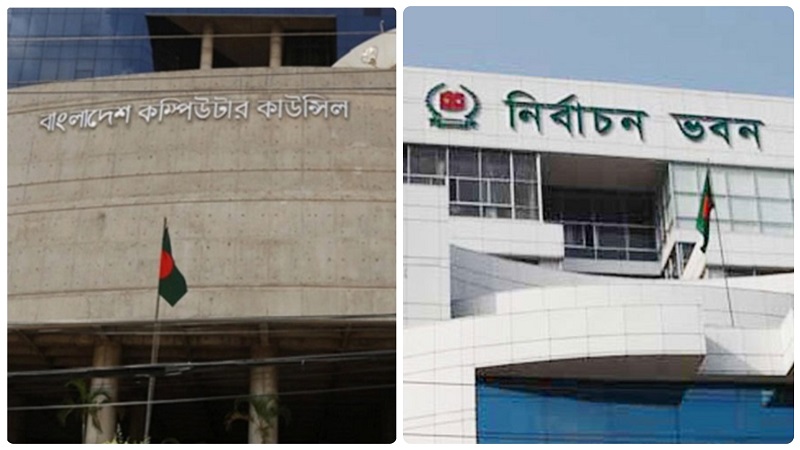Amid rampant corruption and irregularities, including money laundering and accumulation of illegal wealth, the countrys observe International Anti-Corruption Day today.
Lack of political commitment, absence of ideological practices among political people, and flawed elections have created scopes for corrupt people to enjoy supremacy in every sphere of society, said campaigners against corruption.
‘It is clear that corrupt people dominate every sector and most of them enjoy luxury while some small fries are arrested in occasional drives by authorities,’ said former caretaker government adviser M Hafizuddin Khan.
The successive governments of the country, he said, have failed to make the institutions functional in the 49 years after the independence while nepotism has emerged as a major cause of corruption in public and government offices.
He said that almost all sections of society, from school teachers to government ministers, became prone to corruption instead of taking an active stand against corrupt people.
Anti-Corruption Commission chairman Iqbal Mahmood, on the matter, told New Age that the commission failed to fulfil the aspirations of the people.
He viewed that coordinated efforts by the government departments were needed to reduce corruption in the public sector.
In the Global Corruption Perception Index 2019, the latest, of Berlin-based Transparency International, Bangladesh has ranked the 14th most corrupt nation among a total of 180 countries.
Though the rank of Bangladesh has improved by one notch compared to the previous year, the score is still 26 on the scale of 100. The country ranked 13th in 2018 with the same score.
Foreign minister AK Abdul Momen at a recent press conference has admitted that a section of public servants are involved in money laundering.
With reference to the 28 cases over money laundering to Canada, he said, ‘I thought many of them [suspects named] might be politicians. But there were only a handful of them and some were RMG factory owners while most of them were families of government officials.’
Swiss authorities, he further said with reference to Swiss banks as a destination for laundered money, have the habit of not providing information about the money transferred to the banks in their country but they often talk about transparency.
‘It is a glaring example of double standard,’ he added.
According to ACC officials, the commission is struggling to prevent money laundering as the gathering of information about money laundering is tough.
They said that the commission was waiting for a reply from the foreign ministry which it had asked to collect and provide information to it about those Bangladeshis who had obtained foreign citizenship in investment quota.
According to recent TIB studies and surveys, most service seekers still face harassment and are forced to give bribe for obtaining services at public offices.
Former cabinet secretary Ali Imam Majumder told New Age that corrupt people commanded superiority in society due to lack of justice.
He commented that the government should ensure independence of the independent bodies and a proper implementation of the laws.
TIB executive director Iftekharuzzaman in a statement said that along with the ACC, the Bangladesh Financial Intelligence Unit, law enforcement agencies, the National Board of Revenue and the attorney general’s office should act neutrally to check money laundering and bring back the laundered money.
TIB also suggested that the government should observe International Anti-Corruption Day nationally.
To mark the day, the ACC has arranged a virtual meeting at 11:00am today.
TIB is observing the day with the slogan ‘Zero tolerance against corruption needed to combat COVID-19: Stop corruption, save life’.
Reporters against Corruption will form a human chain in front of the ACC head office in the capital at 12:00 noon marking the day.













